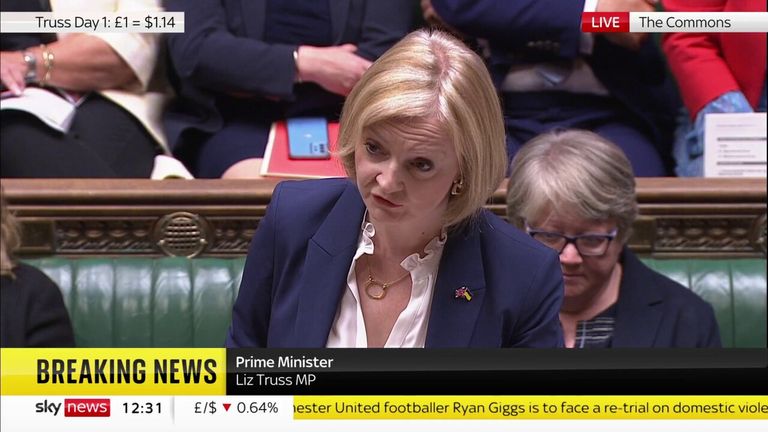Criminals exploiting cost of living crisis with energy rebate scam emails | UK News
Criminals are cashing in on the energy crisis by offering bogus rebates to try and trick victims into handing over bank account details.
Police say in the past fortnight they’ve had nearly 1,600 reports of suspicious emails with links to malicious websites designed to steal personal and financial information.
The scam emails pretend to be from the energy regulator Ofgem and are headed “Claim your bill rebate now”, telling recipients they are due a payment under a government scheme to help people cope with escalating gas and electricity costs.
Detective Chief Inspector Hayley King, of the City of London Police, said: “It is shameful that in a time of financial hardship, criminals are targeting members of the public by claiming they are entitled to receiving rebates and refunds.
“If an email is genuine, the company will never push you into handing over your details. Always take a moment to consider if the request you have received is genuine.
“We would always urge people to follow the Take Five to Stop Fraud advice and think carefully before giving out their personal and financial details.”
Police fear many recipients will be duped into responding to the fraudulent emails because of the hardship expected as energy prices soar.
The emails were reported to police because they contained a glaring error, urging recipients to apply for an energy bill rebate “before September 2020”.
An Ofgem spokesperson said: “Protecting consumers is our top priority and it is alarming that vulnerable customers are being preyed upon in this way when people are already struggling so much.
“That’s why, as energy regulator, on top of issuing our own warnings and advice, we have asked all energy suppliers to ensure clear and up to date information on scams is easily accessible on their websites.
“We take these attempts to exploit consumers very seriously and work with the National Cyber Security Centre to prevent these malicious attacks. If people are unsure if something is a scam they should pause, check and don’t let callers push you into anything.
“Genuine organisations won’t mind you calling back; only scammers apply pressure and insist you hand over details immediately.
“If you have any doubts about a message, consumers should contact the organisation directly and not use the numbers or address in the message – use the details from their official website.”
Police say that anyone suspicious of an email can forward it to report@phishing.gov.uk to have it checked out.

